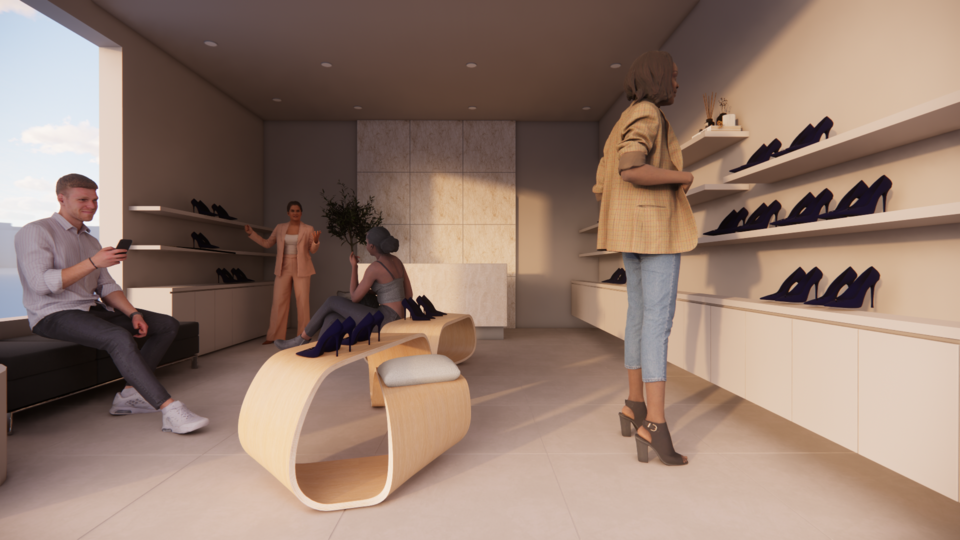Header: Victoria Alsayed & Federico Grazzini
One glance at the Mobi table is enough to capture attention and spark curiosity with its seemingly simple design. But upon taking a closer look, it reveals an endless, looping form, almost as if it is ‘modelling infinity’.
Taking cues from the Möbius strip’s infinite loop—a renowned form that challenges the rules of Euclidean geometry and embodies continuous transformation, the Mobi Table gives a modern twist to the humble coffee table by reimagining it as a ‘single, fluid gesture’ crafted from two strips of bent plywood.


While it is designed to primarily function as a coffee table, it also presents a dual identity as it serves as both a functional piece and a sculptural statement. As it touches the floor, the curves of the table resolve into a continuous ribbon that is both simple in form and rich in conceptual depth.
Not only is this piece of furniture highly practical, but it also challenges conventional form and embodies a thoughtful, sculptural design that bridges concept and everyday use. It invites users not only to place objects on it, but also to engage with and experience space in an entirely different way.

The idea for the Mobi Table first emerged as a project as part of a second-year Furniture Design course at the Florence Institute of Design International (FIDI), an international design school in the heart of the city.
Designed by recent FIDI graduate Victoria Alsayed in collaboration with her instructor, architect Federico Grazzini, the team set out to reinterpret the abstract mathematical concept of the Möbius strip and translate it into a tangible, functional piece of furniture.
Little did they know, what was once just an idea for a school project would soon grow beyond the confines of the classroom. It was far too bold an idea to remain as a school assignment and never see the light of day.
“Mobi is the result of a productive collaboration between student and instructor, and an example of how academic work can evolve into viable design proposals.”
While there’s no denying that the Mobi Table’s form is sculptural, its design is still very grounded in simplicity and versatility.
First imagined as a coffee table, its robust structure and ergonomic dimensions offer layered utility, allowing it to also function as a bench without compromising comfort. It can be used in residential, hospitality, and retail spaces, among many others.


With two staggered surfaces positioned one on top of the other, the table doubles as a space for storage or display, while the curved legs at the corners create alcoves that invite interaction.
From book storage to a playful reading nook for children, or even a cosy spot for your pets, the possibilities are endless. Modular or standalone, it adds a sense of movement and thoughtfulness to any space.


Beyond just a table, the Mobi is a product of a dialogue between student and mentor, vision and refinement, and theory and practice.
What started out as a humble project at the Florence Institute of Design International went on to become a recipient of the 2025 SIT Furniture Design Awards, as a winner in the Coffee Table category, proving that thoughtful design, when nurtured and brought to fruition, can make a mark on the global stage.









